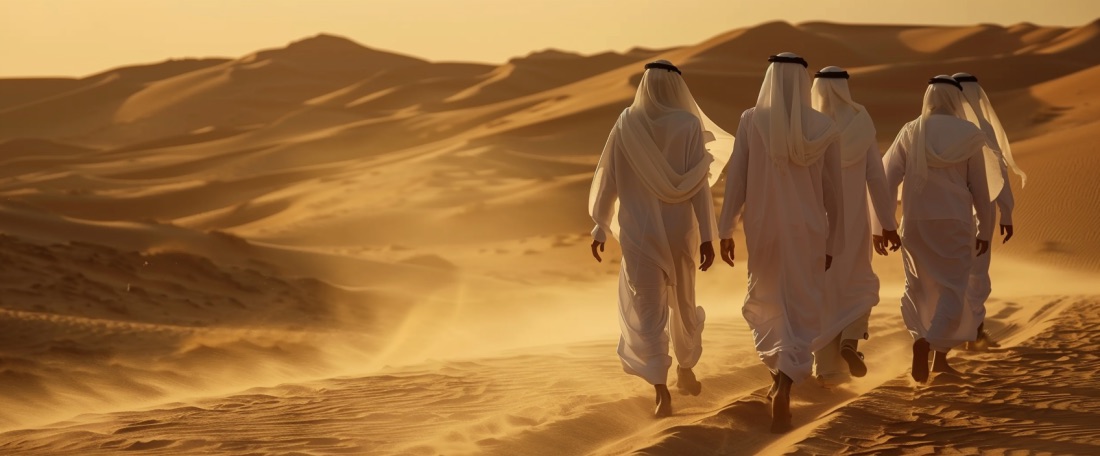Alheda’a: The Poetic Art of Communicating with Camels
In the heart of Arabian societies lies Alheda’a, a traditional folk art that serves as a unique bond between camel herders and their animals.
Using a combination of sounds, gestures, and even musical instruments, camel herders communicate with their camels through Alheda’a. These rhythmic expressions, inspired by poetry, create a special vocabulary that camels seem to understand and follow.
The History and Evolution of Alheda’a
According to a report by the Saudi Press Agency, Alheda’a has been used by herders for centuries to guide their camels through the desert, find grazing pastures, and prepare them for various tasks such as watering, milking, and riding. It also helps in quickly gathering the herd during sandstorms.
Historical accounts trace the invention of Alheda’a back to Mudar bin Nizar, who started using vocal cues after falling from his camel. This marked the beginning of the tradition of using sounds and gestures to communicate with camels.
Early Alheda’a imitated natural camel noises, with herders using vocalizations like “Heh,” “Doh,” and “Dah” to urge their animals along. These cues, along with short poems known as rajaz, are still used today but have evolved into a more poetic artform with deeper meanings and balanced rhythms.
The Significance of Alheda’a in Arab Culture
Ibrahim Al-Khaldi, a Saudi folk heritage researcher, emphasized the importance of Alheda’a in nomadic caravans. This practice, which involves reciting simple rhyming verses in unison, helps encourage camels and aids in tasks like extracting water from wells.
Dr. Mohammed Al-Otaibi, chairman of the Saudi Society for Camel Studies, highlighted the role of Alheda’a in pre-Islamic times. The chants were used to gather camels, guide their movements, and direct them back to their resting places.
Recognition and Celebration of Alheda’a
Inscribed on the UNESCO Representative List of the Intangible Cultural Heritage of Humanity, Alheda’a boasts specific chants for various occasions such as departure, travel, watering, gathering, and drawing water from wells.
Recognizing the cultural significance of camels, the Camel Club was established in Saudi Arabia by King Salman in 2017. The Ministry of Culture has even declared 2024 as the “Year of the Camel” to honor this animal as a cultural treasure and a valuable part of Arab heritage.

